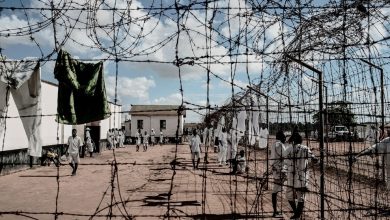Ask what you can do…
A politician—a Malawian politician—is just one plunge from political grace away from turning prisoner. In a game of survival that has been played with subtleness since independence, politicians in positions of influence have turned their rivals into prisoners at the flick of the finger.
Such has been the intimate relationship—if you will pardon the expression—between politician and prison, one would have expected them to make prisons humane and habitable in readiness for that inevitability.
That this has not happened is only because no politician visualises himself clad in coarse, cream garbs that is the prisoners’ uniform or eating one monotonous meal a day for the entire duration of their sentence.
According to the Prison Inspectorate, however, conditions in prisons are appalling. Congestion is the order of the day to accommodate the swelling population of convicts. Meals are sparingly provided to the prisoners. What passes for healthcare is so rudimentary it wouldn’t even qualify as Stone Age. In fact, that would be an insult.
So dire is their situation it is like condemning an entire population of prisoners to an early death.
The government, of course, carries the blame; it is easy to blame it for anything. If it doesn’t rain, blame the government. God must be angry with it. It it rains heavily, blame the government. If it is too dusty, like Lilongwe is, blame the government; they should have bituminised the entire city.
But, when the enduring words of former US president John F. Kennedy—‘Ask not what your country can do for you; ask what you can do for your country’—echo in my mind, I feel we sometimes give the government needless flak.
Some, if not all, of the problems the prisons face can be solved with minimal or no direct intervention from the central government.
For starters, it was only a few years ago that some prison officials were waxing lyrical about the abundance of food they had such that they could feed prisoners regular and square meals. The prisoners were producing their own food. Now, what happened to that story of hope and inspiration?
The prisons house over 10 000 inmate. That, in itself, is a huge workforce that is just locked up and perchance, perform some menial jobs such as sweeping the streets or tending to the gardens of prison officers.
In fact, so huge is the potential workforce in prisons they can do more than just loaf and wait for their day of release or sweep the streets. With proper supervision, why can’t the prisoners build extra cells or even an entire prisons to reduce congestion in the existing correctional facilities?
There is a risk, I must admit, that some mischievous prisoners would bolt while that is taking place or would create weak links within the facilities on purpose for future use, but such a risk is remote, if not non-existent.
Suggesting the prisons halve their population may solve one problem but create another. Prison is about reforming convicts but as history has informed us, they can be training grounds for hardcore criminals as well.
A man arrested for stealing a chicken will come out of prison bereft of any trace of innocence and and becomes a gun-toting bandit on release. Admittedly, a few are reformed upon release, but some come out with a mission to wreck vengeance on a society that tossed them into squalid, dehumanising conditions.
Maybe instead of taking the government to task, what about looking at the sentencing of some crimes instead? For instance, while jailing someone who steals a chicken for seven years and sentencing another who ‘pinches’ K65 million for only three years raises questions about fairness, the issue is more complex. It is not everyday someone steals K65 million but chicken thieves come by the dozen.
Our prisons are full of such people who committed ‘crimes of necessity’ who should otherwise have been given alternative punishment that does not stress the government purse.


